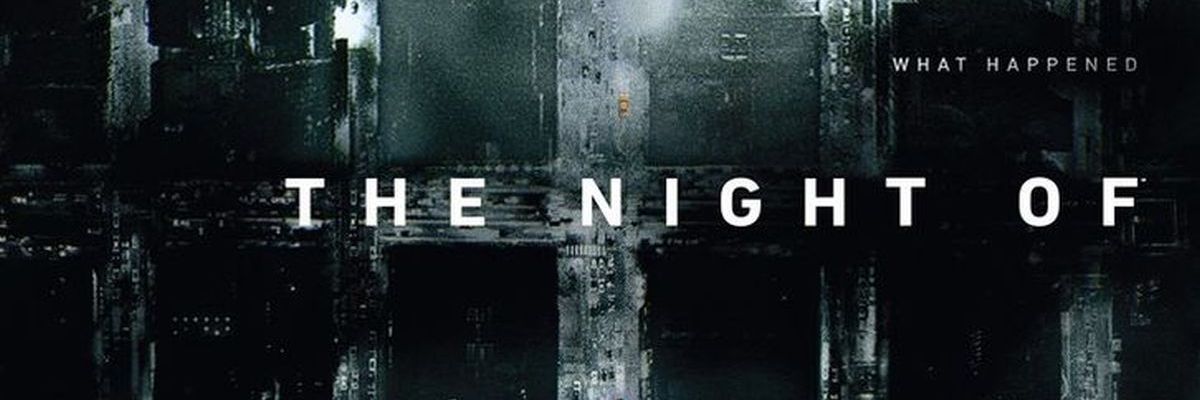HBO’s new miniseries came to a conclusion a few days ago, and so I figured now would be a good time to talk about what worked and what didn’t throughout the show’s eight-episode season.
Before the sixth episode of the show aired I posted a very positive piece on the show, observing that its combination of a The Wire-like exploration of the criminal justice system, great characters, and more conventional storytelling elements was what made it work so well. So it’s funny that as of the sixth episode the show began to fall apart.
One of the great strengths of the first five episodes was their ability to transition between a spiritual successor to The Wire and a typical crime drama. But the final three episodes proved that the show was far more successful at the former than the latter.
This show, for the most part, excelled when exploring how the U.S criminal justice system essentially chews up and spits out everyone involved. Hell, that seemed to be one of the finale’s core themes, as everyone involved in Naz’s case seemed irreversibly altered by the experience, most notably Naz himself.
But this aspect of the show was moved to the background in the last three episodes as the trial took precedence, thus leading the show to become the extended episode of Law & Order it already sort-of felt like. And it…wasn’t that good at it. An awful lot of what happened in those episodes regarding the trial felt like the writers moving the plot rather than the plot developing naturally.
Obviously, the most egregious example of this is the character of Chandra, an already underdeveloped character who gets completely railroaded by the script in the final two episodes in service of the plot. From the kiss in episode seven to the drug smuggling in episode eight, none of it was set up well (or at all, really) and its only purpose was to set up John Stone’s triumphant closing argument. Overall I quite liked the finale – particularly the last twenty minutes or so – but the fact that so much of it hinged on Chandra’s actions left a bad taste in my mouth.
Another issue I had with these final episodes, and the season as a whole, was trying to tell the difference between whether a character is incompetent or if the writers are trying to say something about the inefficient criminal justice system. For example, why did Stone and Chandra not look into who would stand to gain financially from Andrea’s death until after the trial had started? Why did Box only start really analyzing security camera footage until after he retired?
One could make excuses for the show and say that all of this is because of the worn-down nature of the criminal justice system, but the writers never conveyed that idea. Instead, these feel like the writers saving certain plot developments until the last possible moment for the sake of extra courtroom drama, and it comes off as these seemingly competent characters being absolute idiots.
Another issue I found with the show as it neared its end is something I initially praised it for: characterization. Of course, there’s no denying that Chandra was a poorly written character. The writers never figured out who she was, and so her only purpose was to move the plot along, regardless of the semblance of consistency that was previously established with her.
But I think issues with characterization run deeper than that. It’s bot as if the other major characters on the show were badly written, but they weren’t exactly well-written either. I mean, none of them were particularly well defined or three dimensional. In fact, they weren’t much more than traits and quirks, but because they were played by such good actors, it was overlooked.
Think about it. characters such as Stone, Weiss or Box weren’t exactly complex, and almost the entirety of the praise directed towards them have been for the actors playing them. The performances of John Turturro, Jeannie Berlin, and Bill Camp were outstanding, and were rightly praised, but did we learn much about those characters as people aside from surface level details such as Stone’s eczema?
I mentioned above how none of the characters were particularly well developed, and that criticism applies to Naz too. Yes, his transformation is obvious – and Riz Ahmed was tremendous – but we didn’t go on that journey with Naz, we merely watched it from a distance. Throughout the show – especially after Naz met Freddy (played by the always great Michael K. Williams) – we as viewers were at a remove from Naz as a character, learning things about him from third parties, such as his violent tendencies as a kid and his drug dealing. In fact, as the show progressed, we realised we didn’t really know Naz at all.
Yes, this show is rightly praised for certain aspects, such as its themes and the lived-in feel of its world, but there’s no denying it problems, which only became more glaring as it progressed. The Night Of was filled with wonderful scenes featuring great character actors doing what they do best, the best example of which being the tremendous scene in episode seven in which Weiss cross-examined the snarky forensics expert, but this was a show that tried to be too many things, and in the end it didn’t come together very well. It’s a shame, given the strength of the series premiere, which is one of the best episodes of TV you’ll see all year, but The Night Of never truly figured out what it wanted to be, and in the end became one of the biggest disappointments of the year.
